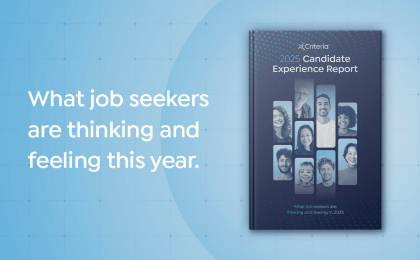Ghosting has become a prevalent complaint among today’s job seekers. Employers and recruiters leave candidates in the dark on their standing in the hiring process. Are they still in the running for the job, or should they move on?
This breakdown in communication has ramifications for a company’s employer brand: candidates lose both trust and respect for the company that ghosted them and are more likely to share their negative experience with others. This can ultimately discourage other job seekers from applying.
We wanted to better understand how common this phenomenon is, how candidates feel about it, and see if there was any insight to be gained for how you can keep candidate from feeling ghosted. To learn more, we included questions about it in our annual research survey for the 2024 Candidate Experience Report.
Here’s what we learned:
How common is ghosting?
Out of our 2500 respondents, 38% of them report having been ghosted by a recruiter or potential employer in the last year. The 2024 hiring landscape appears to be shifting back towards favoring employers, where there are a greater number of qualified applicants looking for work. This surge in available talent is related to the large number of layoffs that plagued many industries (especially tech) in 2023.
With more candidates searching for fewer jobs, many organizations have been inundated with applications. As a result, some are prioritizing communication only with candidates that they are moving forward. This practice leaves the rest in limbo, where candidates aren’t sure if they’re still in the running for the job, or if they have been rejected and should move on.
What qualifies as ghosting anyways?
Different people have different interpretations of what it means to be ghosted by a potential employer. In our 2024 Candidate Experience Report, we not only wanted to understand how prevalent getting ghosted was, but also what current job seekers consider ghosting.
The results surprised us. 34% of candidates assume that they’ve been ghosted by a recruiter or potential employer if they haven’t heard back after just one week.
According to the data, if you take longer than 2 weeks to update your candidates, 75% of them will consider themselves ghosted and may have already moved on to other opportunities. When coupled with the rising cost of living, most candidates can’t afford to sit around and wait.
So in addition to being demoralizing and frustrating for job seekers, a lack of regular communication and updates from you means that candidates are likely to move on – and move on fast – even if you haven’t rejected them.
Give candidates closure and don’t let ghosting haunt your hiring process
Regardless of whether a candidate is moving on to the next stage of your hiring process or being rejected, make sure that you inform candidates of their application status. And don’t keep them waiting for your answer – they won’t stick around waiting to hear it.
Using automated emails can help streamline your candidate communications and ensure every applicant is promptly informed of their standing. You can set up templated responses in most applicant tracking systems to send your candidates personalized emails that let them know if they are moving forward or politely inform them that they aren’t the right fit for the role.
Just keep in mind that real-time automated rejection emails also have their drawbacks, so make sure you get the timing right. If a candidate receives a rejection email within a few minutes of applying, they won’t feel as though they were fairly considered for the role.
And if a candidate has invested a lot of time and effort in your hiring process, make sure you adjust your method of response appropriately. If an applicant you’re rejecting has made your shortlist, provided a work sample, or done multiple rounds of interviews, it’s more appropriate to call them with the news that they’re not moving forward.
Timely communication and respect for candidates goes a long way to make sure you’re keeping your applicants engaged.
To discover what else is top of mind for today’s job candidates, check out the full 2024 Candidate Experience Report.





